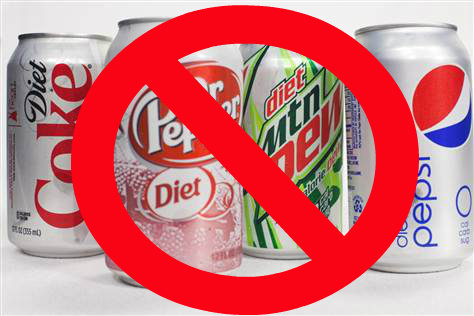There is no clear evidence that diet soda directly causes diabetes. However, some evidence suggests that diet soda may increase the risk of developing type 2 diabetes.
One theory is that consuming artificial sweeteners commonly found in diet soda may disrupt the body’s ability to regulate blood sugar levels. This disruption can lead to insulin resistance and an increased risk of developing type 2 diabetes.
However, it’s important to note that this association between diet soda and type 2 diabetes is not fully understood and may be influenced by other factors, such as overall diet and lifestyle choices.
Read Also: What is diet definition?
Additionally, people who already have diabetes may be advised to limit their intake of diet soda due to its high acidity, which can potentially harm tooth enamel and exacerbate existing gastrointestinal issues.
So, can diet soda cause diabetes? More research is needed to understand the relationship between diet soda and diabetes fully. If you have concerns about your risk of developing diabetes or other health conditions, it’s essential to consult with a healthcare professional.
What is Diet Soda?
Diet soda is a type of carbonated beverage that is artificially sweetened with zero or low-calorie sweeteners. Unlike regular soda, typically sweetened with high amounts of sugar, diet soda is marketed as a healthier alternative because it contains few or no calories.
Diet sodas are often sweetened with artificial sweeteners such as aspartame, sucralose, or stevia. These sweeteners are much sweeter than sugar, so only a tiny amount is needed to improve the beverage. Some diet sodas also contain caffeine, which is a stimulant that can provide an energy boost.
Diet sodas come in various flavors, including cola, lemon-lime, orange, and grape. They are often marketed to people trying to lose weight or maintain a healthy lifestyle, as they contain fewer calories than regular soda. However, it’s important to note that consuming diet soda regularly may still have potential health risks, as artificial sweeteners may negatively affect metabolism and overall health.
Read Also: 7 Causes of Body Got High Cholesterol
Effect Diet Soda
Diet soda has been the subject of numerous studies investigating its potential effects on health. While some studies suggest that diet soda may have potential health benefits, such as weight loss and improved blood sugar control, other studies have raised concerns about the possible adverse effects of consuming diet soda regularly. Here are some of the potential impacts of diet soda:
- Weight gain: While diet soda contains fewer calories than regular soda, some studies suggest that consuming diet soda may still lead to weight gain. This gain may be due to artificial sweeteners potentially disrupting the body’s ability to regulate appetite and metabolism.
- Increased risk of type 2 diabetes: Some studies have found an association between regular consumption of diet soda and an increased risk of type 2 diabetes. The exact mechanism behind this association is not fully understood, but it may be related to artificial sweeteners disrupting the body’s ability to regulate blood sugar levels.
- Dental health issues: Diet soda is highly acidic, which can erode tooth enamel and lead to dental problems such as cavities and tooth sensitivity.
- Potential adverse effects on heart health: Some studies have suggested that consuming diet soda may increase the risk of heart disease and stroke. However, the evidence is not yet conclusive.
- Increased risk of kidney disease: Regular diet soda consumption has also been associated with an increased risk of kidney disease.
Overall, the potential effects of diet soda on health are still being studied, and more research is needed to fully understand the long-term health implications of consuming diet soda regularly. As with any food or beverage, moderation is vital, and it’s essential to consider the potential risks and benefits before making it a regular part of your diet.
























